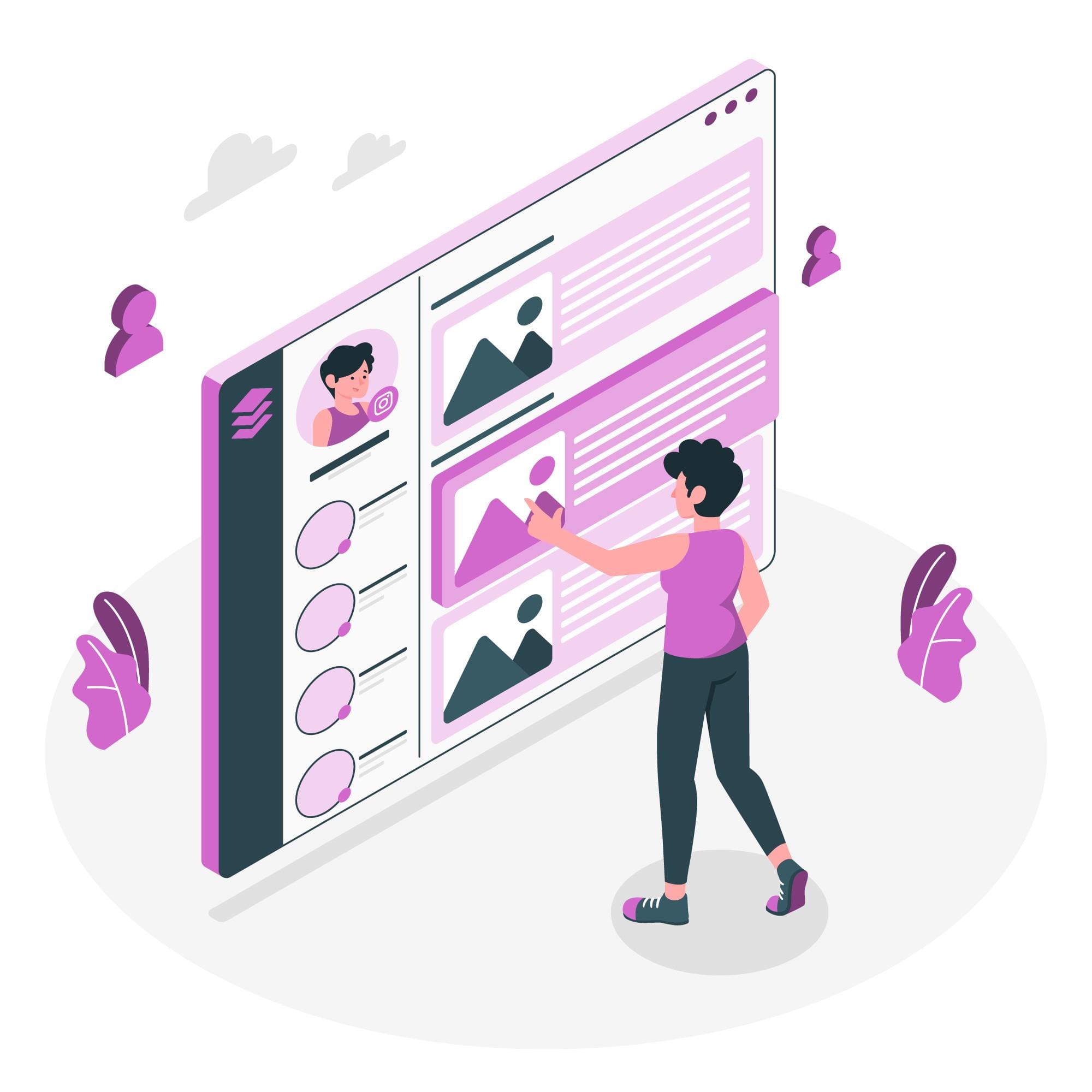Launching an app has turned out to be an important moment in the modern digital era for both businesspeople and entrepreneurs. The market of mobile applications is developing at a crazy pace, as multiple statistics show. According to Statista, the revenue from mobile apps is forecast to significantly increase in all segments.
Particularly noteworthy is the segment Games, which has the highest value of 249.9 billion U.S. dollars. Keeping in mind that there are more than 3.8 billion users of smartphones all over the world, the potential for a successful mobile app launch is huge.
However, the task of how to launch an app involves a huge amount of planning and execution. In this article, we'll show you the top 15 critical steps that will help your new app launch stand out in the crowded marketplace. Regardless of whether you are going to launch an app on Android, iOS, or both platforms, these are steps that give you insight into complexities relating to app launching and set you up for success.
15 Essential Steps For a New App Launch
1. Quality Market Research
Understand your target market before building your app. Study in-depth by finding out who the potential users are, what their needs are, and what are the pain points. This will be your foundation on how to launch an app that best fits your target audience.
- Competitor app analysis with the study of their features
- Identify the market gap your application will fill
- Leverage insights tools such as Google Trends and App Annie to your advantage
CB Insights reports that 42% of startups that fail do so due to a lack of market need. Don't become that statistic with your app.
For effective market research:
- Surveying would-be users for preferences and pain points
- Analysis of in-app store reviews for similar applications, outlining the common complaints and desired features
- Leverage social media listening tools to understand the sentiment of existing solutions in your niche
2. Articulate Your Value Proposition
Your UVP is a factor that distinguishes your application from the competitors. This is the reason why one should choose your application among all the others. While designing a plan for launching an app, one should definitely get a clear and catchy UVP ready.
- Emphasize the special features of the app and the benefits derived from it
- Solution: How to explain in the application, that it solves some particular problem?
- Formulate a clear, memorable statement of the UVP
Below is what you should consider while defining your UVP:
- Focus on one single benefit that your app gives people
- Choose straightforward, unintimidating words and phrases that truly speak to your audience
- Test your value proposition on users of your target market to ensure that it clearly communicates the value of an app
3. Create a Solid Strategy for the App
A well-articulated strategy is important for the launch app process. It's all about choosing which platforms to target: iOS Android, or both, among others, and which features to include in your Minimum Viable Product.
- Native, Hybrid, or Cross-platform: Which Path to Choose?
- What's your monetization strategy? Free, Freemium, Paid, Ad-based, etc.
- Design the roadmap of the application based on future updates and features
Consider the following while architecting your app strategy:
- UDPs articulate the preferred platforms and devices of the target audience
- Features of your app and their technical requirements
- Your budget and timeline constraints
4. Design an Intuitive User Interface (UI) and User Experience (UX)

Success in launching an app largely relies on how friendly the application is to users. Always invest your time and resources into developing an intuitive UI with smooth UX.
- Wire-framing and Prototyping
- User testing, which shall prove to enhance the design
- Ensure consistency across all screens and features of an application
Recall that 25% of applications downloaded are used once and never opened again. A good UI/UX will do wonders for user retention.
In order to design an exceptional UI/UX:
- Follow the design guidelines for each specific platform: Material Design for Android, Human Interface Guidelines for iOS
- Make use of Progressive onboarding in order to take users through the features of the application
- Optimization for use with one hand, considering accessibility features
Partner with Us for Success
Experience seamless collaboration and exceptional results.
5. Building a High-Quality Application
Launching an app requires quality to be a key concern. A buggy or crashing app will lead rather quickly to negative reviews and uninstalls.
- Follow platform-specific design guidelines
- Implement stringent testing procedures
- Performance optimization for various devices and network conditions of an application
Development ensuring high quality:
- Providing version control to your code base is done using Git or other versioning systems
- Continuous Integration and Continuous Deployment Practices
- Full Testing - unit tests, integration tests, and user-acceptance testing
- Partially optimize the performance of the application by using some factors in the battery and data consumption
6. Add Analytics and Crash Reporting
Setup analytics, crash reporting, etc., before your app launch, so you understand the behavior of your users with your app, and find defects in your app.
- Good tools to use would be Google Analytics for Firebase or Mixpanel
- Implemented error tracking using services such as Crashlytics
- Identification of KPIs-appropriate tracking of app success
For analytics implementation:
- Track specific information regarding user engagement, such as DAU and session length
- Observe user flows to pinpoint any specific points where users may bottleneck or fall out
- Set up event tracking for the most valuable actions people perform in your app
- A/B testing for feature and UI optimizations
7. Develop an ASO strategy

ASO is a partner in increasing your application's visibility in stores. The moment your application goes live, it needs to be highly discoverable.
- Research the keywords relevant for your application and use them in the application title and description
- Create dazzling app screenshots and videos
- Enable your app on different marketplaces
To take your ASO to the next level:
- Do some research using App Annie or Sensor Tower based on your niche and look for popular keywords
- Describe for me an app that would be interesting-including, but not limited to, your value proposition and listing its key features
- Design eye-catching application icons in order to make them really pop in search results
- Encourage Satisfied Users to Touch Up Positive Reviews and Ratings
8. Build a landing page and a profile on social media
Create a buzz about your new app launch by pre-launch landing and social media setup.
- Design an attention-grabbing landing page that would also feature highlights of the important features of the App, complete with a sign-up form
- Setting up application social media accounts: Twitter, Facebook, and Instagram
- This would include building in the list of potential users into the email
In order to maximize the power of your online presence:
- Teaser content becomes something that generates interest in an upcoming app
- Provide early access or special features to users who register before the launch
- Entertain and interact with subscribers: respond to comments, messages as fast as possible
- Share behind-the-scenes content in an effort to build the relationship with your potential users
9. Drawing up a Marketing Plan
A holistic marketing plan is required for launching an app. Your app launch plan should include pre-launch, launch-day, and post-launch activities.
- Build a content marketing strategy incorporating regular blog posts, videos, and infographics
- Aspects a paid advertising campaign on Google Ads and Facebook Ads
- Reaching out to influencers and tech bloggers for reviews and coverage
When you can make your marketing plan:
- Label Set specific, measurable goals for the launch of your app based on the number of downloads and cost of user acquisition
- Episode mapping of the content calendar, with considerations for consistency in tone across all channels
- Discussions on partnership deals with common app enrichments or services are considered, cross-promotional promotions
- Different Phases of Marketing: Ongoing pre-launch hype, launch day push, and sustained growth
10. Beta Test Your Application
Do a beta test before your official app launch, allowing you to receive feedback and catch any problems at the last minute.
- Distribute the app on platforms such as TestFlight for iOS or Google Play Console for Android
- Recruit a representative pool of beta testers
- Collect and analyze feedback for improvements to be made
To maximize the beta testing phase:
- Clearly define what you want to learn from the beta
- Ascent beta testers with actual tasks or scenarios to perform
- Use in-app feedback tools to make reporting easier for the testers
- Fix critical bugs and user experience issues; prioritize for launch
11. Prepare Your Support Infrastructure
Make sure you have a good support system ready before you launch a mobile app.
- Designate a support email or ticketing system
- Complete development of a full section of FAQs
- In-app support for chat can be provided
To enhance your support infrastructure:
- Develop a knowledge base of frequently encountered problems with resolutions
- Training for the support team based on various app features and possible problems that might arise
- Improve response time with the implementation of automatic responses to frequent inquiries
- Implement mechanisms for escalating serious issues to the development team
Partner with Us for Success
Experience seamless collaboration and exceptional results.
12. Finalize Your App Store Listings
Craft your app store listings with attention to detail that will create maximum visibility and drive downloads at launch.
- Description Writing-Write captivating, keyword-rich descriptions
- High-quality screenshot and video upload
- Set the right category and price for your app
How to optimize your app store listings:
- Use all the screenshot slots available to show the most important features of your application
- Tease the value in your app within the first couple of seconds via the use of a preview video
- Localize your app listing for different markets for more reception globally
- Regularly update your listing by featuring new items alongside the good words of end-users
13. Plan Your Activities on Launch Day
The day of launching an app is a very important one; plan your activities to have maximum effect and downloads.
- Coordinate all your marketing across all channels
- Send the contest to your email list and social media followers
- Follow the rankings in stores and user comments closely
Launch day:
- Host an online launch event or livestream where you will be able to engage with early adopters
- Launch day promotions or special features to download
- Social media engagement - early feedback communication
- Keep a tab on the performance of your app and stand ready to respond swiftly to any issues that may arise
14. Monitor and Respond to User Feedback

After your app launch, pay close attention to user feedback and reviews.
- Respond promptly to user reviews and questions
- Address common issues or feature requests in updates
- Use feedback to guide your app's future development
To effectively manage user feedback:
- Set up alerts for new reviews and mentions of your app online
- Develop a system for categorizing and prioritizing user feedback
- Regularly communicate with users about how their feedback is being incorporated
- Use negative feedback as an opportunity to improve your app and turn critics into advocates
15. Iterate and Update Regularly
Launching an app is just the beginning. Regular updates and improvements are key to long-term success.
- Plan a schedule for feature updates and bug fixes
- Keep users informed about upcoming changes
- Continuously analyze user data to inform your update strategy
To maintain momentum after launch:
- Set a regular update schedule (e.g., bi-weekly or monthly)
- Use A/B testing to validate new features before full rollout
- Monitor user engagement metrics to identify areas for improvement
- Stay informed about platform updates and new technologies that could enhance your app
FAQs
1. How long does it take to launch an app?
The time it takes to launch an app can vary greatly depending on its complexity, features, and the development process. On average, it can take anywhere from 3 to 9 months from conception to app launch. Simple apps might be developed and launched in as little as 2-3 months, while complex, feature-rich applications could take a year or more.
2. How much does it cost to launch a mobile app?
The cost to launch a mobile app can range from $10,000 for a basic app to over $500,000 for a complex, feature-rich application. Factors affecting the cost include app complexity, design requirements, and the development team's location. Ongoing costs for maintenance, updates, and marketing should also be considered in your budget.
3. What's the best way to monetize a new app?
The best monetization strategy for your new app launch depends on your target audience and app type. Common strategies include in-app purchases, subscriptions, freemium models, and in-app advertising. It's essential to choose a model that aligns with your app's value proposition and user expectations. Consider testing different monetization methods to find the most effective approach for your specific app and audience.
Need Expert Help?
Launching an app can be a complex process, but you don't have to do it alone. At F22 Labs, we specialize in helping startups and established businesses bring their app ideas to life. Our team of experts can guide you through every step of the app launching process, from development to marketing. We offer comprehensive MVP Development Services that streamline the app development and launch process, ensuring your vision becomes a reality.
